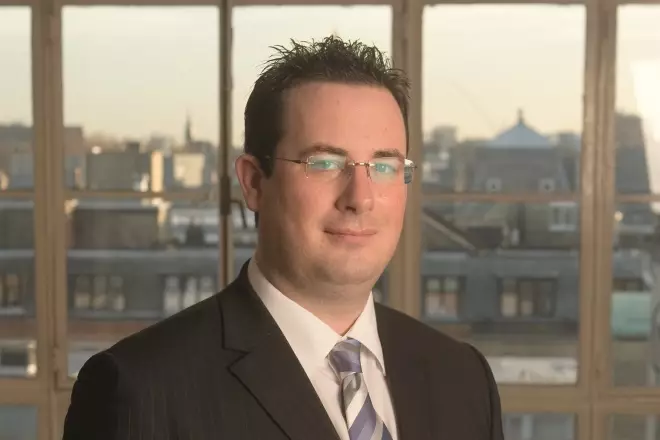
Shutterstock.com

Source: Pharmaceutical Services Negotiating Committee
Alastair Buxton, director of NHS services at the Pharmaceutical Services Negotiating Committee, says pharmacists are already easing the burden on the NHS but that “if the right enablers were in place” could prevent 60,000 hospital admissions a year for asthma and another 110,000 for chronic obstructive pulmonary disorder
Community pharmacists will explain to MPs later this month how the profession can help take pressure off NHS services this winter.
Details of the drop-in event at the House of Commons come amid claims that health and care services are now on a “knife edge” with staff working “on the edge of safety” alongside calls for an extra £4bn next year to stop the NHS falling deeper into crisis.
The Royal Pharmaceutical Society (RPS), the National Pharmacy Association (NPA) and others are jointly running a 90-minute session on 21 November to bring MPs up to speed about the contribution the profession can make this winter.
MPs will have the chance to have a pharmacist consultation to discover what they can do this winter to keep themselves healthy. An opportunity to have a flu vaccine is also planned.
Community pharmacists are being urged to let their local MP know about the drop-in ahead of the event and invite them to attend. Publicity materials and other resources are available on the Pharmaceutical Services Negotiating Committee (PSNC) website to help pharmacists draw attention to their potential in addressing winter pressures
The pharmacy collaboration is part of a wider day of action to reinforce the message this winter that the profession has a wealth of expertise to offer — something already acknowledged by the new pharmacy minister Stephen Brine.
Alastair Buxton, PSNC director of NHS services said services were under “immense pressure” adding: “These pressures will be exacerbated in the winter months and that is why health leaders must act very quickly to make better use of the network of community pharmacies who are already working to take some of the pressure off other providers.”
He said pharmacists already offer healthcare advice to patients, support people with long-term conditions to stay in the community — taking pressure off hospitals — and offer flu vaccinations.
But more could be done “if the right enablers were in place”, said Buxton. A pharmacy-led respiratory support service could, he suggested, prevent 60,000 hospital admissions a year for asthma and another 110,000 annually for chronic obstructive pulmonary disorder.
He said: “Community pharmacy should be a key part of the solution to the NHS winter challenges; we hope that health leaders will take note and make full use of the sector.”
Stephen Fishwick, head of communications at the NPA — which represents community pharmacists — said: “Imagine for a second how things would be this winter without community pharmacies and you understand immediately how vital the network is to the public’s health.
“Self-care would be undermined, GPs and hospitals would quickly be overwhelmed and healthcare costs would spiral out of control. It is quite predictable that there will be yet another access crisis in the NHS this winter. With the right level of support, pharmacy has the potential to deliver transformational solutions.”
Sandra Gidley, chair of the Royal Pharmaceutical Society English Pharmacy Board: “With people now twice as likely to wait more than four hours in A&E than four years ago, the health service is already struggling to cope with growing pressures and finite resources.
“We know that winter will see an increase in hospital admissions and the NHS Stay Well This Winter campaign rightly encourages people to seek advice from a pharmacist about how they can stay healthy.
“Pharmacy teams are a vital part of the NHS workforce in promoting public health and resilience. Whether it is encouraging self-care, vaccinating more than a million people against flu since September, or providing healthy lifestyle advice, we will continue calling for the NHS to make the most of community pharmacy’s potential to support patient care and help keep people out of hospital.”
The increased role for pharmacy in front-line care chimes with comments made by Brine in September when he admitted that community pharmacy skills may have been underused in the past but he recognised the vital contribution they could make in boosting public health and taking pressure off other NHS “hot spots” like GP services and A&E.
Last week (3 November 2017) the influential think tank the King’s Fund warned that health services were facing increasing financial pressure and patient demand this winter and that services were on a “knife edge.”
Another report on 7 November 2017 from NHS Providers — the organisation which represents NHS trusts — said workforce pressures and increased demand threatened patient safety. Its director of policy and strategy and deputy chief executive Saffron Cordery, said trusts were worried about the shortages on the front line, which were leaving staff with “undoable” jobs.
The King’s fund, the Nuffield Trust and the Health Foundation, also painted a gloomy picture of the state of health and care services in a joint report published on 8 November 2017 — two weeks ahead of the Chancellor’s autumn budget.
They said that the NHS needed another £4bn next year otherwise more patients will wait longer for treatment, more services will be rationed and quality of care will further deteriorate.


